Depression is widespread in present-day society, and is commonly treated with antidepressants. As discussed previously, research suggests that mind-body therapies, including acupuncture, can help relieve depression. But what about antidepressant withdrawal? What happens when someone is ready to stop their medication?
Antidepressants are widely used and still on the rise globally. As of 2013, antidepressants are among the most commonly prescribed medications in the US. According to The New York Times, the use of antidepressants has increased 60% since 2010. Most of long-term antidepressant users (70%) are female, with 1 in 4 adult women in the US taking antidepressants at any given time. In the United Kingdom, antidepressant use has doubled within the last 10 years.
When antidepressants were first introduced in the late 1970s, most people taking them were seeking a short-term solution. Decades later, more users than ever are remaining medicated for many years. Users may be motivated to discontinue taking their medication for several reasons, such as:
- They no longer feel depressed
- They are experiencing unpleasant side effects, such as sexual dysfunction, emotional blunting, or weight gain
- The drugs are no longer working to relieve depression.
However, many people find it difficult to cease because of the intensity of antidepressant withdrawal symptoms (also called “discontinuation syndrome” in the parlance of drug manufacturers). Signs of antidepressant withdrawal include flu-like symptoms, body pain, insomnia, dizziness, confusion, fatigue, and other unpleasant symptoms that can last for months.
Fortunately, there are alternative mind-body therapies available, such as Five Element acupuncture and Zero Balancing, as well as nutrition and herbal medicine. These therapies not only can ease the transition as you taper off antidepressants and support you through the antidepressant withdrawal process, they can also help relieve the underlying causes of depression.
Mind-body therapies have also changed how we think about depression and mental health; brain chemistry is now seen as an effect more often than as much as a cause. We recognize that depression has roots in personal history, life trauma, and social disempowerment.
What Are Antidepressants?
There is a cornucopia of several classes of mood-altering drugs with familiar names: Prozac, Zoloft, Effexor, Paxil, Welbutrin, Cymbalta, among others. While they differ in their chemical structure and action, their widespread use is based on the so-called chemical imbalance theory–that mood disorders are caused by a deficiency in neurotransmitters (serotonin, dopamine, norepinephrine).
Scientific evidence for the chemical imbalance theory is, in fact, scant, and nowadays most experts do not accept it as the causal explanation of depression. It is now understood that individual biochemistry responds to the environment, so changes in neurotransmitter levels both are both the cause and effect of depression and mood. Very little is actually known about the underlying biology of depression. The chemical imbalance theory is actually less of a scientific explanation than it is a marketing spin perpetuated by drug manufacturers to promote their products to regulators and the general public. (Hari, 2018)
The placebo effect of antidepressants is well known; about 40% of the antidepressant’s effect is believed to be placebo. Improvements in mental health attributed to the use of antidepressants may be due either to recovery time or to the placebo effect.
Antidepressants and Generation Rx
Antidepressants have shaped how we view and approach mental health over nearly half a century. We are all part of “Generation Rx.” The way in which antidepressants have been prescribed has certainly changed over the years. While early antidepressants date back to the 1950s, the widespread use of antidepressants as prescription drugs began after fluoxetine (Prozac) was developed in the 1970s.
Originally, antidepressants were intended for short-term use (6-9 months), but now they are increasingly being used over longer periods. There are few studies of any long-term impacts on people who use these drugs for over two years. Primary care providers typically prescribe these medications without the involvement of a psychiatrist or other mental health professional, so there is often scant assessment of the patient’s mental health condition before the drug is prescribed.
Our attitude toward and relationship with antidepressants has changed over the years and reflects how we view depression. Antidepressants have shaped the public’s understanding of mental health issues, including depression. Older adults (over 60) generally came to use antidepressants after a stressful life event or trauma, such as the death of a loved one or a painful divorce. They typically viewed antidepressants as a short-term bridge to ease the stress of these difficult times. Decades ago, depression and mood disorders were often stigmatized by the public as a weakness in one’s character. Yet, many continued to use these drugs because the withdrawal symptoms were so severe.
By the mid-1990s, prescribing guidelines had changed as drug manufacturers convinced government regulators that long-term use of antidepressants could prevent relapses in the chronically depressed. These companies promoted the “chemical imbalance” theory–that mood disorders and depression are caused by deficiencies in neurotransmitters, chiefly serotonin. In truth, the theory has scant evidence to support it, and we know little about the underlying biology of depression or whether chemical imbalances cause depression or are an effect of it.
The generation now in their 40s and 50s came of age during a time when mental health problems were no longer stigmatized. The chemical imbalance theory predominated, and long-term use of antidepressants soared. Nonetheless, many people in this age range wish to discontinue antidepressant use because of the unpleasant side effects: weight gain, sexual dysfunction, emotional blunting, and even antidepressant-induced mania or suicidal behavior. Sadly, many individuals find they simply cannot stop taking their antidepressants, as the withdrawal symptoms can be quite severe.
By the year 2000, guidelines had changed to allow physicians to prescribe antidepressants to children and adolescents. Many of the children of the baby-boomers and gen-xers, now in their teens and twenties, were prescribed antidepressants when they were too young to understand why they needed to take this medication. As adults, many are discovering the significant side effects of long-term antidepressant use, such as sexual dysfunction, or they simply feel that they do not really need these drugs and wish to stop taking the medication altogether. Others may be considering starting a family, and they may wish to go off their medication for the safety of the developing fetus.
Antidepressant Withdrawal Symptoms and Discontinuation Syndrome
Many people who are on antidepressants only intended to use them in the short-term. However, once they try to quit, they often experience severe withdrawal symptoms, including:
- Nausea
- “Brain zaps”(electric shock sensations in the brain)
- Body pain
- Confusion
- Fatigue
- Dizziness
- Sleep disturbances
- Flu-like symptoms that can last for months
How common is discontinuation syndrome? According to a New Zealand study, 75% of long-term (more than two years) users complained of withdrawal symptoms when they tried to quit their medications. About half of users who try to gradually taper off their medication still rate their withdrawal symptoms as “severe.” Some antidepressants may be harder to discontinue than others, but the studies thus far are so inadequate that we still do not know which antidepressants are more likely to result in withdrawal symptoms. The tapering-off process can take months or even years, depending on the severity of the symptoms. Physicians often try to take patients off of these drugs too quickly, and patients find themselves so devastated by the withdrawal symptoms that they have to resume the medications.
Clearly, there is still a substantial lack of information on withdrawal from antidepressants, mainly because manufacturers and big pharmaceutical companies have little interest in funding studies that will lead people to stop using their products. Consequently, mainstream medicine has little to offer in helping people wean off their antidepressants, so people may end up taking unnecessary medications for decades, simply to avoid the intense withdrawal symptoms. While some patients may very well benefit from lifetime antidepressant use, we still lack research that identifies the sub-population that can most benefit from long-term use of these drugs.
Antidepressant Withdrawal and Mind-Body Therapies
At Inner Works Acupuncture, we strongly recommend that clients discuss the decision to cease any medication, including antidepressants, with their prescribing physician. Nonetheless, many people do seek out Five Element acupuncture to find relief from depression, or to aid in the withdrawal transition from antidepressant use. Many clients find the antidepressant because their medication has stopped working after a period of time. All of the available therapies that Inner Works offers can help relieve depression and ease the process of withdrawal.
Acupuncture and Chinese Herbal Medicine
Several research studies suggest that acupuncture can both help reduce antidepressant withdrawal symptoms and prevent relapse for people who stop using antidepressants. At Inner Works, we have used acupuncture successfully for many years to help clients navigate the withdrawal process.
Chinese herbal medicine can also be helpful for easing the transition from antidepressants. Preliminary research on several traditional herbal formulas suggests that these can be effective for relieving depression, with fewer side-effects than pharmaceutical medications.
Acupuncture, along with Chinese herbal medicine, also has benefits for many physical symptoms than can accompany depression and discontinuation syndrome. One special area where acupuncture and Chinese herbal medicine stand out is in helping regulate hormone imbalances that may contribute to post-partum depression and mood swings that accompany pre-menstrual syndrome.
Whole Foods Nutrition for Mental Health
A nutrient-dense, whole foods diet provides your body and mind with the metabolites needed to support brain chemistry. At Inner Works, nutritional therapy is definitely part of a holistic program for easing the withdrawal transition from antidepressants. We may recommend dietary changes and supplementation tailored to support mental health and your individual needs. Something as simple as eating a wholesome breakfast can help improve your mood and lower stress. Even the American Psychiatric Association recognizes the importance of nutrient-dense, whole foods in supporting mental health and wellness.
Stress Reduction and Zero Balancing
Zero Balancing, a hands-on therapy, works with both energy and structures in the body to shift the client’s baseline from sympathetic (fight-or-flight) to parasympathetic (rest and digest). This therapy not only relieves physical pain, but can also produce an expanded state of consciousness that is highly relaxing. Clients often report feeling tremendous clarity, ease and a sense of inner happiness during and after these sessions.
The paradigm of Chinese medicine and Five Element acupuncture sees depression differently from Western medicine. Chinese medicine offers a fuller, holistic understanding of human emotions, combined with effective mind-body therapies. Moving beyond the chemical imbalance theory, Chinese medicine can help us identify the roots of depression, offer appropriate treatment, and reduce dependence on medications.
Inner Works Acupuncture is a Five Element acupuncture clinic in Portland, Oregon. Call us today at (503) 227-2127 to schedule an appointment.




